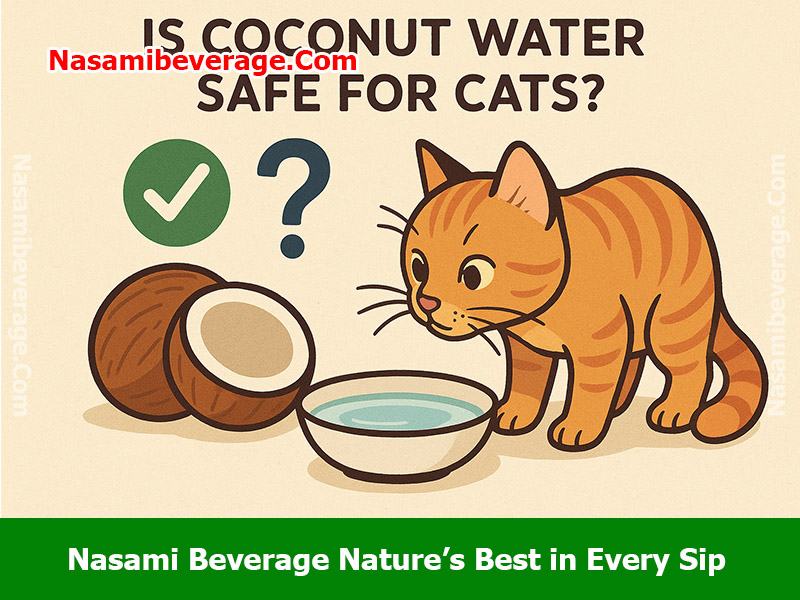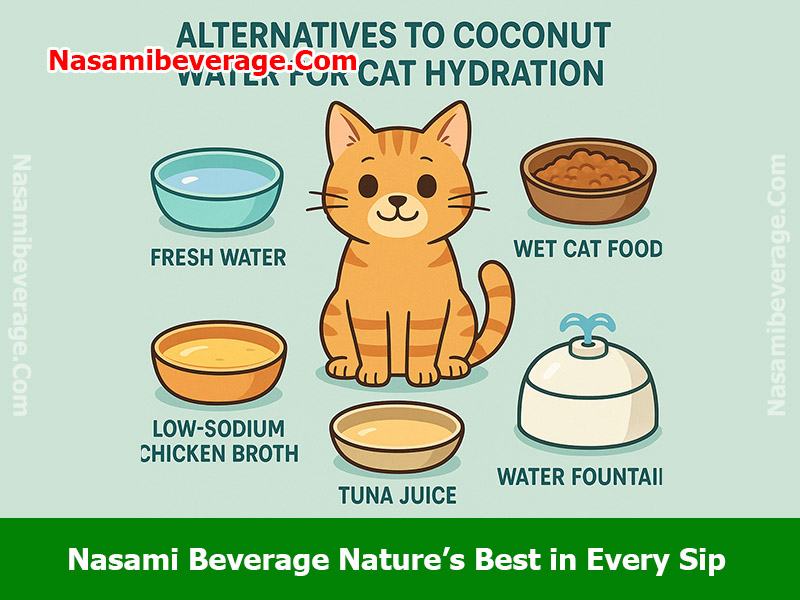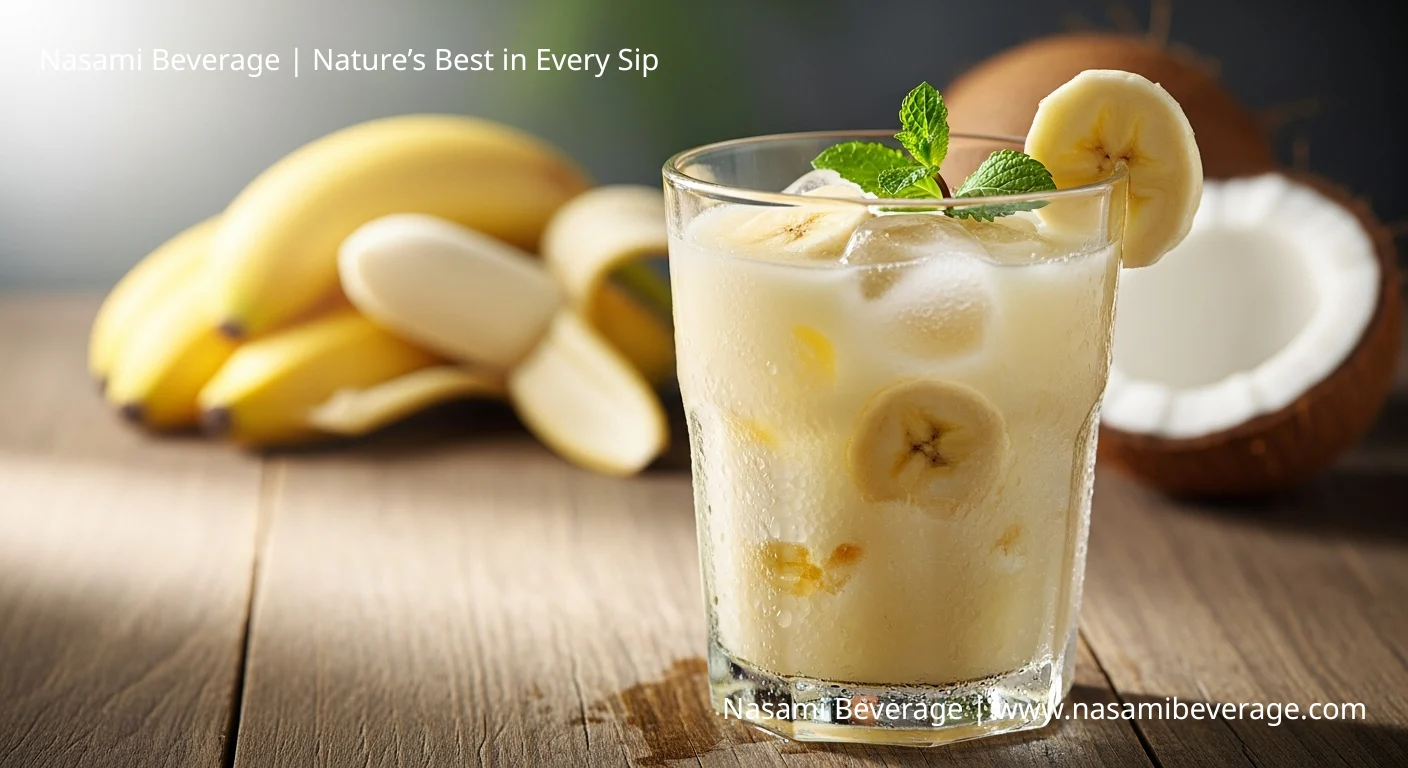Can cats have coconut water? Coconut water has become a go-to hydration drink for health-conscious humans, celebrated for its electrolytes and refreshing taste. But as pet owners, we often wonder: Can cats drink coconut water too? With more cat owners exploring natural and trendy foods for their feline friends, this question is trending across pet care forums and social media. In this vet-informed guide, we’ll explore whether coconut water is safe for cats, its potential benefits, risks, and how to offer it responsibly. Let’s dive into the facts to keep your furry friend healthy and hydrated!
What Is Coconut Water?
Composition of Coconut Water
Coconut water is the clear liquid found inside young, green coconuts. It’s naturally rich in electrolytes like potassium, magnesium, and sodium, making it a hydrating beverage. Unlike coconut milk (made from coconut flesh) or coconut oil (extracted from mature coconuts), coconut water is low in fat and calories but packed with nutrients. For humans, it’s a popular post-workout drink, but does it hold the same appeal for cats?
Why It’s Popular for Humans
Coconut water’s rise to fame comes from its hydration benefits and nutrient profile. It’s marketed as a natural alternative to sugary sports drinks, with brands like Vita Coco leading the charge. Its refreshing taste and electrolyte content make it a favorite for athletes and wellness enthusiasts.
Naturally, pet owners are curious if these drinking coconut water benefits translate to their cats, especially during hot weather or illness.
Is Coconut Water Safe for Cats?
Veterinary Opinions
According to veterinarians and pet health resources like Catster and Modern Vet, coconut water can be safe for cats in small amounts, but it’s not a necessary addition to their diet. Cats have unique nutritional needs, and while coconut water isn’t toxic, it should only be given sparingly as a treat. Always consult your vet before introducing new foods or drinks to your cat’s diet.
Potential Risks
While coconut water is generally safe, there are risks to consider:
Hyperkalemia: Coconut water is high in potassium, and excessive amounts can lead to hyperkalemia (high potassium levels), which may cause weakness, lethargy, or even heart issues in cats.
Digestive Upset: Cats have sensitive stomachs, and unfamiliar foods like coconut water may cause diarrhea or vomiting.
Sugar Content: Some commercial coconut waters contain added sugars or flavors, which are harmful to cats. Be cautious and check if the coconut water has gone bad before offering it to your pet.
To avoid these risks, stick to pure, unsweetened coconut water and offer it in tiny amounts.

Cats’ Unique Nutritional Needs
Cats are obligate carnivores, meaning their diet should primarily consist of meat-based proteins. Unlike humans, they don’t need plant-based foods or drinks like coconut water to thrive. Fresh water remains the best and safest way to keep your cat hydrated. Coconut water should never replace a balanced feline diet or regular water intake.
Benefits of Coconut Water for Cats
Hydration Support
In certain situations, coconut water can provide a hydration boost. For example, during hot summer days or if your cat is recovering from mild dehydration (under vet supervision), a small sip of coconut water may encourage fluid intake. Its natural electrolytes can help replenish what’s lost in extreme conditions.
Electrolyte Balance
Coconut water contains potassium and magnesium, which support electrolyte balance in cats. However, because cats only need tiny amounts, the benefits are minimal compared to a proper diet and water. A healthy cat typically gets all necessary electrolytes from high-quality cat food, like those from Purina or Royal Canin.

When It Might Be Useful
Coconut water might be helpful in rare cases, such as:
Encouraging a picky cat to drink during hot weather.
Offering a palatable liquid to a cat recovering from illness (with vet approval). Always prioritize veterinary guidance to ensure it’s appropriate for your cat’s health.
How to Give Coconut Water to Cats Safely
Choosing the Right Coconut Water
Not all coconut water is created equal. When selecting coconut water for your cat:
intently, unsweetened coconut water with no added sugars, flavors, or artificial ingredients.
Avoid flavored varieties or blends (e.g., pineapple-coconut mixes).
Look for reputable brands like Vita Coco (intended for humans but safe if pure).
Always check the label to ensure it’s 100% coconut water.
Serving Size and Frequency
Less is more when it comes to coconut water for cats:
Offer 1-2 teaspoons as an occasional treat, not a daily drink.
Mix it with your cat’s regular water to dilute it and reduce potassium intake.
Never replace fresh water with coconut water, as cats need plain water for optimal health.
Monitoring Your Cat
After giving coconut water, keep an eye on your cat for any adverse reactions, such as:
Vomiting or diarrhea.
Lethargy or unusual behavior.
Reduced appetite. If you notice any of these signs, stop offering coconut water and contact your vet immediately.
Alternatives to Coconut Water for Cat Hydration
Fresh Water
The gold standard for feline hydration is clean, fresh water. To encourage your cat to drink more:
Use a pet water fountain, as cats are attracted to running water.
Place multiple water bowls around your home.
Refresh water daily and clean bowls regularly.

Other Vet-Approved Options
If you’re looking for cat-safe alternatives to coconut water, consider:
Bone Broth: Low-sodium, cat-safe bone broth can be a tasty hydration boost. Look for vet-approved options at Petco.
Cat Milk: Specially formulated cat milk (lactose-free) is available from brands like Purina. These options are designed with feline health in mind and are safer than coconut water.
Wet Food for Hydration
Wet cat food is an excellent way to increase your cat’s moisture intake. Brands like Hill’s Pet Nutrition and Royal Canin offer wet food formulas that support hydration and nutrition. Cats on a wet food diet often drink less water because they get moisture from their meals.
FAQs – Can cats have coconut water?
Can kittens drink coconut water?
Kittens have sensitive digestive systems and should not be given coconut water. Their diet should consist of kitten-specific food and water, as advised by a vet.
What are the signs of hyperkalemia in cats?
Signs include weakness, lethargy, muscle tremors, and irregular heartbeats. If you suspect hyperkalemia, contact your vet immediately.
How much coconut water is safe for cats?
A small amount (1-2 teaspoons) as a rare treat is generally safe. Always dilute it and consult your vet first.
Are there better hydration alternatives for cats?
Yes, fresh water, wet cat food, and vet-approved bone broth are better and safer options for keeping your cat hydrated.
So, can cats drink coconut water? In small, occasional amounts, pure coconut water is generally safe for cats but not essential. While it may offer minor hydration benefits, fresh water and a balanced diet remain the best ways to keep your cat healthy.
Always consult your veterinarian before introducing new foods or drinks, and monitor your cat for any adverse reactions. For premium coconut water and pet-safe hydration tips, check out Nasami Beverage. Curious about other pets? Learn if can dogs have coconut water for your canine companions. By prioritizing your cat’s unique needs, you’ll ensure they live a happy, hydrated life.
“The greatest gift you can give your cat is a life of health and happiness, starting with proper nutrition and care.” – Jackson Galaxy, Cat Behaviorist.



